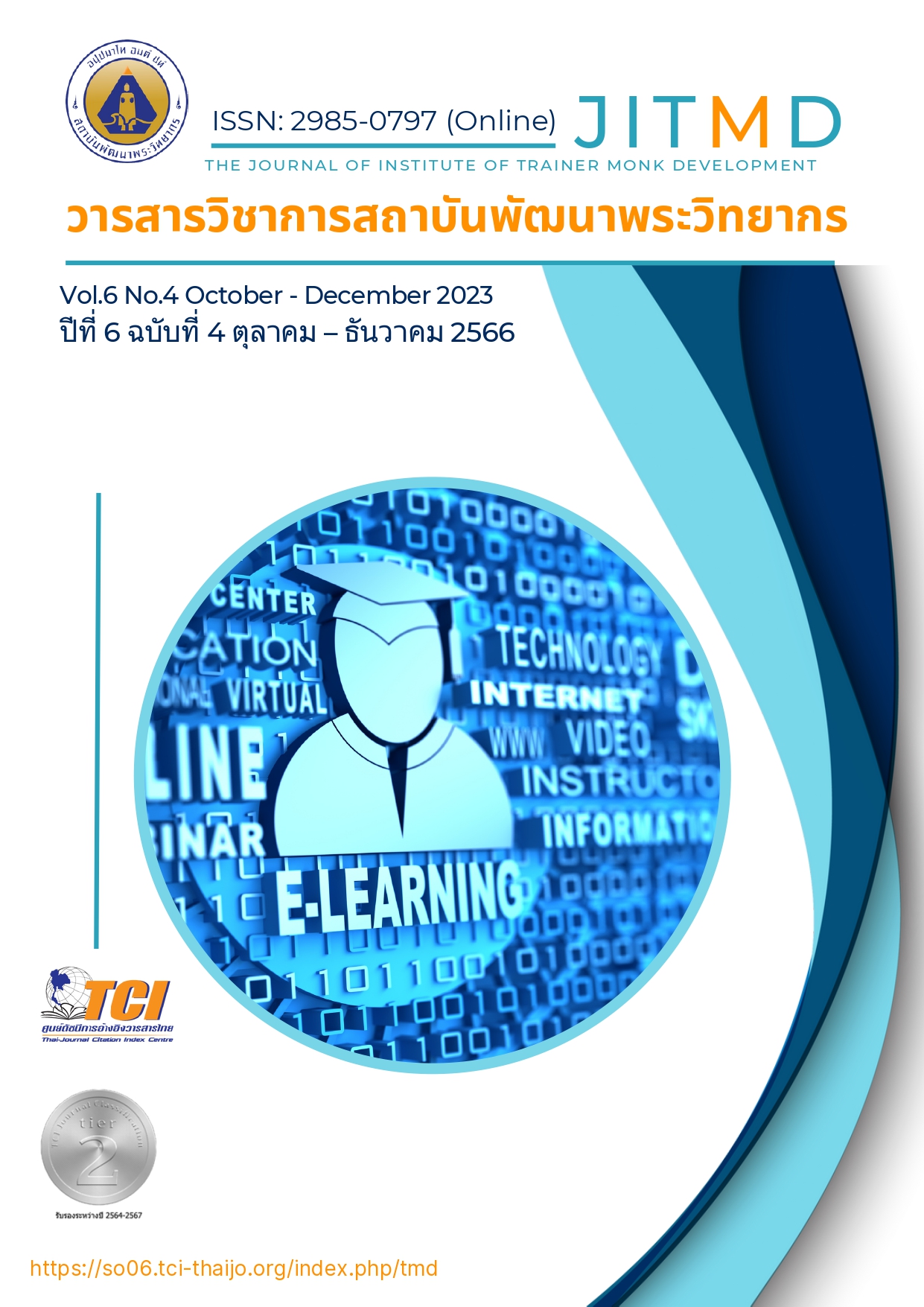การพัฒนารูปแบบศักยภาพผู้ประกอบการอู่ซ่อมรถยนต์ ในยุคเศรษฐกิจสร้างสรรค์
Main Article Content
บทคัดย่อ
บทความนี้มีวัตถุประสงค์ดังนี้ 1) เพื่อศึกษาองค์ประกอบสำคัญในการพัฒนารูปแบบศักยภาพผู้ประกอบการอู่ซ่อมรถยนต์ในยุคเศรษฐกิจสร้างสรรค์ 2) เพื่อพัฒนารูปแบบศักยภาพผู้ประกอบการอู่ซ่อมรถยนต์ในยุคเศรษฐกิจสร้างสรรค์ 3) เพื่อสร้างคู่มือการพัฒนารูปแบบศักยภาพผู้ประกอบการอู่ซ่อมรถยนต์ในยุคเศรษฐกิจสร้างสรรค์ การวิจัยครั้งนี้เป็นการวิจัย เชิงคุณภาพกับการวิจัยเชิงปริมาณ เครื่องมือที่ใช้เก็บรวบรวมข้อมูลได้แก่ แบบสอบถาม สถิติที่ใช้ในการวิเคราะห์ข้อมูลได้แก่ สถิติเชิงพรรณนา และสถิติเชิงอนุมานเพื่อวิเคราะห์องค์ประกอบเชิงสำรวจ ผลการวิจัยพบว่า 1) องค์ประกอบที่สำคัญผลการวิจัยในการพัฒนารูปแบบศักยภาพของผู้ประกอบการนั้นมีข้อกำหนด 3 ด้านคือ (1) การพัฒนาผู้บริหาร (2) การบริหารจัดการ และ (3) การพัฒนาเศรษฐกิจสร้างสรรค์ 2) ระบบการบริการอู่ซ่อมรถยนต์เพื่อให้สอดคล้องกับลักษณะการใช้รถยนต์ของคนไทยและสามารถแข่งขันกับศูนย์บริการของรถยนต์ทุกยี่ห้อได้ ผู้ประกอบการในฐานะผู้นำสูงสุดขององค์กร ต้องให้ความสำคัญกับการบริหารการเปลี่ยนแปลงเนื่องจากสามารถนำพาองค์กรบรรลุวิสัยทัศน์ เป้าหมายความสำเร็จได้ 3) การพัฒนารูปแบบศักยภาพผู้ประกอบการอู่ซ่อมรถยนต์ คือ การพัฒนาผู้บริหาร การบริหารจัดการ และการพัฒนาเศรษฐกิจสร้างสรรค์ โดยประกอบด้วย 4 ปัจจัยหลัก ได้แก่ ความรู้ ทักษะ คุณลักษณะที่พึงประสงค์ และการบริหาร
Article Details

อนุญาตภายใต้เงื่อนไข Creative Commons Attribution-NonCommercial-NoDerivatives 4.0 International License.
บทความที่ได้รับการตีพิมพ์เป็นลิขสิทธิ์ของวารสารวิชาการสถาบันพัฒนาพระวิทยากร
ข้อความที่ปรากฎอยู่ในบทความที่ได้รับการตีพิมพ์ในวารสาร ถือเป็นความรับผิดชอบของผู้เขียนบทความ และข้อคิดเห็นนั้นไม่ถือว่าเป็นทัศนะและความรับผิดชอบของกองบรรณาธิการวารสารวิชาการสถาบันพัฒนาพระวิทยากร
เอกสารอ้างอิง
กัลยา วานิชยบัญชา. (2554). สถิติสำหรับงานวิจัย. กรุงเทพฯ: ธรรมสาร.
ชุติกาญจน์ แก่นโส. (2557). สมรรถนะผู้บริหาร การพัฒนาบุคลากร และส่วนประสมการตลาดที่ส่งผลต่อความพร้อมในการเข้าสู่ประชาคมเศรษฐกิจอาเซียน: กรณีศึกษาบริษัทอุตสาหกรรมอาหารแห่งหนึ่ง. ปริญญาบริหารธุรกิจมหาบัณฑิต. มหาวิทยาลัยกรุงเทพ.
บิล ออเล็ท. (2560). วิชาสร้างธุรกิจฉบับ MIT [Disciplined Entrepreneurship] (วิญญูกิ่งหิรัญ วัฒนา ผู้แปล). กรุงเทพฯ: อัมรินทร์บุ๊ค เซนเตอร์.
จุรีพร จันทร์พาณิชย์. (2554). การประกอบการ (Entrepreneur). บุรีรัมย์: โครงการจัดทำตำรา และงานวิจัยเฉลิมพระเกียรติ 84 พรรษา พระบาทสมเด็จพระเจ้าอยู่หัว. มหาวิทยาลัยราชภัฎบุรีรัมย์.
ประสิทธิ์ ฉัตรแสงอุทัย. (2557). รูปแบบการพัฒนาศักยภาพผู้บริหารองค์กรธุรกิจในประชาคม อาเซียน. วิทยานิพนธ์บริหารธุรกิจดุษฎีบัณฑิต สาขาวิชาการพัฒนาธุรกิจอุตสาหกรรมและทรัพยากรมนุษย์. บัณฑิตวิทยาลัย. มหาวิทยาลัยเทคโนโลยีพระจอมเกล้าพระนครเหนือ.
วรายุทธ จันทร์พราหมณ์. (2561). การปรับปรุงประสิทธิภาพการทำงานอู่ซ่อมรถยนต์: กรณีศึกษา. สารนิพนธ์หลักสูตรปริญญาวิศวกรรมศาสตรมหาบัณฑิต สาขาวิชาการจัดการอุตสาหกรรม. มหาวิทยาลัยสงขลานครินทร์.
สำนักงานคณะกรรมการพัฒนาการเศรษฐกิจและสังคมแห่งชาติ. (2553). กิจกรรมปรับกระบวนทัศน์ของประเทศสู่เศรษฐกิจสร้างสรรค์. จัดโดยกระทรวงการต่างประเทศร่วมกับศูนย์สร้างสรรค์งานออกแบบการบรรยาย ณ ศูนย์สร้างสรรค์งานออกแบบ วันที่ 26 มีนาคม.
อาคม เติมพิทยาไพสิฐ. (2553). “Thailand’s Creative Economy”. รองเลขาธิการสำนักงานคณะกรรมการพัฒนาการเศรษฐกิจและสังคมแห่งชาติ นำเสนอในกิจกรรมปรับกระบวนทัศน์ของประเทศสู่เศรษฐกิจสร้างสรรค์ จัดโดยกระทรวงการต่างประเทศ ร่วมกับศูนย์สร้างสรรค์งานออกแบบ การบรรยาย ณ ศูนย์สร้างสรรค์งานออกแบบ วันที่ 26 มีนาคม.
Bacigalupo, M. et al. (2016). EntreComp: The Entrepreneurship Competence Framework. Luxembourg: Publication Office of the European Union.
Frederick, H. et al. (2007). Entrepreneurship: theory, process and practice. South Melbourne: Thomson Learning.


